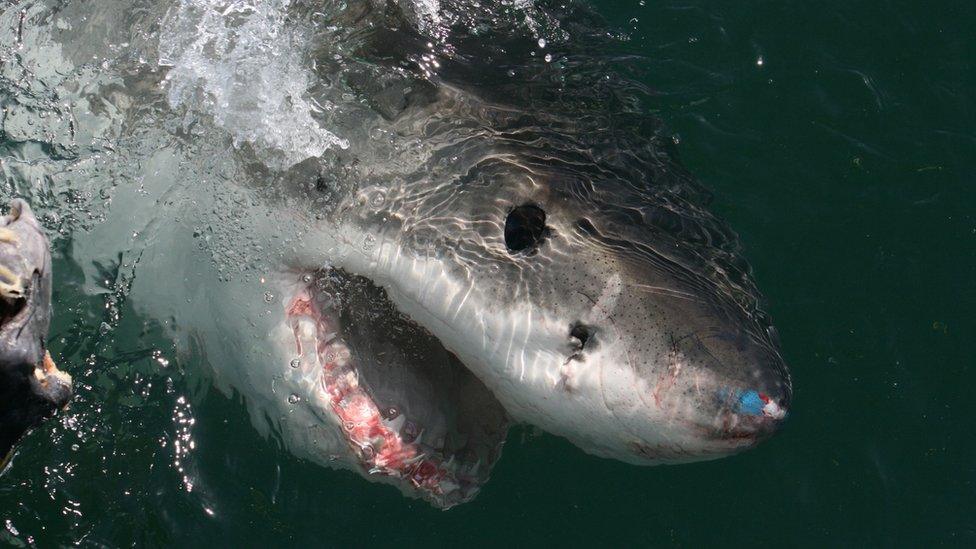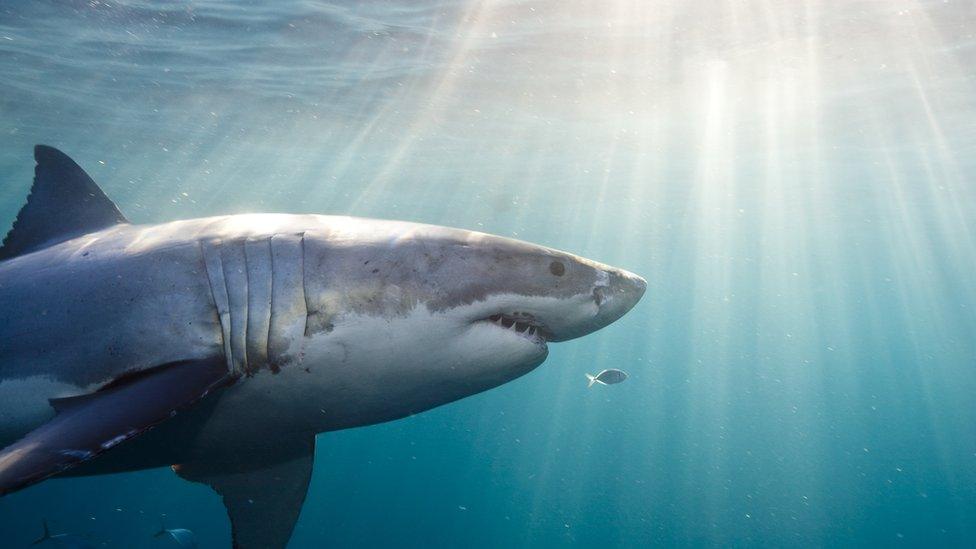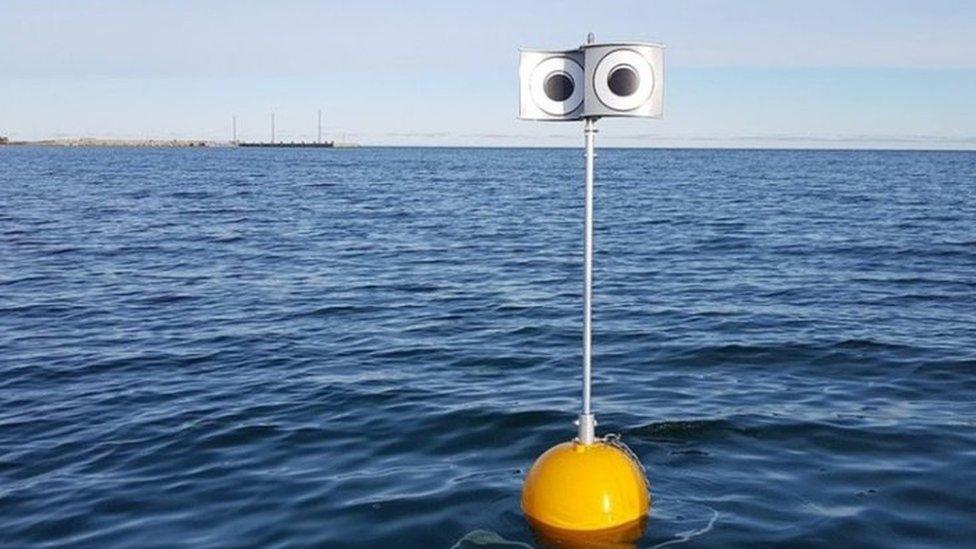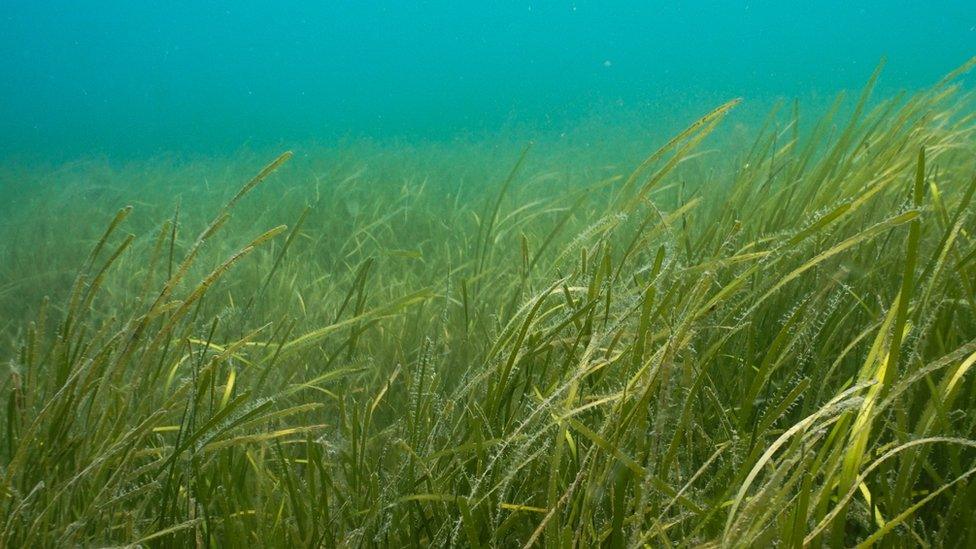Great white sharks use the ocean as a training ground to prepare them for adulthood
- Published
- comments

Young great white sharks have been found to use different parts of the sea as a training ground to prepare them for adult life.
Researchers have found that by using certain areas of the sea they can perfect their hunting skills without having to compete with larger creatures.
More than 3000 sharks were studied off the coast of Mossel Bay in South Africa.
Scientists found that the bay was a sheltered environment for the young sharks where they could hunt different types of prey such as fish, seals and small whales.

The study published in the journal Environmental Biology of Fishes wanted to see if the sharks used various areas of the ocean for different stages of life.
The team studied the sharks in the bay and found that most were juveniles, measuring between 1.75m and 3m in length.
Great whites are the largest predatory fish on Earth
They have grey upper bodies but they got their name from their white under bellies
It does not chew its food
They feed on small fish, seals and dolphins
They grow to an average of 15 feet but some can be beyond 20 feet long
They did not see any adults, who can grow up to 6.4m long. They think the teenage sharks use Mossel Bay as a place to learn how to hunt without having to compete with larger sharks.
Dr Nicholas Ray, a researcher in Nottingham Trent University, said: "Very little is known about great white populations and how these sharks use different habitats during their life stages. It would appear they're using these waters to prepare for adulthood."
We know that these sharks have capacity for social learning, and the greater numbers of juveniles sighted throughout our study suggests that younger great whites have adopted this bay as a crucial nursery and potential training ground where they can learn to hunt in relative safety.
Researchers think this work could help stop the species from becoming extinct.
Great whites have been classed as vulnerable from the International Union for Conservation of Nature.
Dr Ray said: "Our findings could help protect specific habitats that these sharks utilise at different stages of their life. It might also bring about further legislation to support a vulnerable species at risk of extinction."
- Published5 May 2021

- Published4 May 2021

- Published5 May 2021
